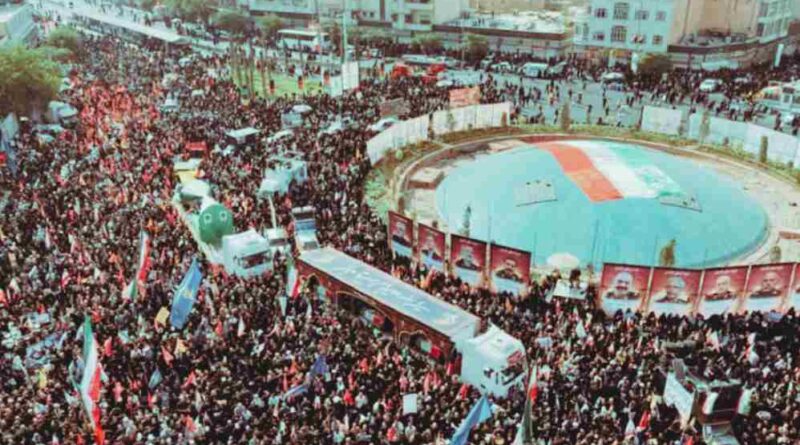Thousands Mourn Fallen Iranian Leaders Amid Rising Tensions
Tehran, Iran – June 28, 2025
A somber wave swept across Iran today as thousands gathered in the capital and other cities to mourn the deaths of several top Iranian military commanders and prominent scientists, reportedly killed in a recent Israeli operation. Emotions ran deep — a mix of grief, fury, and fierce nationalism — as mourners filled the streets, many draped in black and waving national flags, echoing chants of defiance and unity.
The attack, which Iranian officials have described as a “targeted assassination,” has ignited a new phase of volatility in the already tense relationship between Iran and Israel. The losses are considered a major blow to Iran’s strategic and defense apparatus, as several of the individuals killed played pivotal roles in the country’s military planning, defense research, and regional operations.
Faces of the Fallen
Among those killed were senior figures from Iran’s elite military units and renowned defense scientists. While official details are tightly controlled, state media confirmed that at least four high-ranking officers and two scientists were among the casualties. Their coffins, draped in Iranian flags, were carried through the streets of Tehran in a deeply symbolic and emotional public procession.
Images broadcast across Iranian television showed weeping family members, solemn-faced officials, and masses of ordinary citizens lining the roads. The ceremony was not only an expression of grief but also a strong political message — an affirmation of resistance and a call for national resilience.
“This Is Not the End”
During the mourning ceremonies, top Iranian officials vowed that the deaths would not go unanswered. “We will not forget. We will not forgive,” declared one senior Revolutionary Guard commander, addressing the crowds in Tehran’s Behesht-e Zahra cemetery. His words were met with chants of “Death to Israel” and “Revenge, revenge!” from a visibly enraged crowd.
Supreme Leader Ayatollah Ali Khamenei issued a statement praising the victims as “martyrs in the path of honor and defense of the nation,” vowing that their blood would not be shed in vain. He emphasized the importance of unity and strength during what he called a “critical moment in our history.”
A Calculated Strike?
Though Israel has not officially claimed responsibility for the attack, many experts believe it bears the hallmarks of previous operations attributed to Israeli intelligence services, particularly Mossad. The precision of the strike, the high-profile nature of the targets, and the timing have fueled speculation that it was a strategic move aimed at disrupting Iran’s defense infrastructure and scientific progress.
This is not the first time such events have unfolded in the region. Iran has previously accused Israel of carrying out similar covert operations targeting nuclear scientists and military figures. However, the scale and scope of this latest incident make it one of the most significant in recent years.
National Grief, International Concern
The Iranian people have responded with a wave of public mourning rarely seen since the death of General Qasem Soleimani in 2020. Across cities like Mashhad, Isfahan, Shiraz, and Qom, candlelight vigils were held, and public prayers were offered for the souls of the deceased. The atmosphere was thick with emotion — not only mourning the dead but also steeling for what might come next.
International observers are closely watching the situation. Analysts warn that this incident could mark a serious escalation in regional conflict, particularly if Iran chooses to retaliate militarily. Many fear that a misstep on either side could lead to a broader confrontation, pulling in neighboring countries and destabilizing the region further.
The Road Ahead
In the midst of their sorrow, Iranians are bracing for uncertain days ahead. Public sentiment is leaning strongly toward a demand for justice, but many also fear the potential consequences of retaliation. Civilians worry that a larger conflict could threaten daily life, trigger economic fallout, and even lead to military confrontation on Iranian soil.
Yet in spite of those fears, there’s a powerful sense of unity rippling through the nation. For many Iranians, this moment has rekindled a deep sense of patriotism and commitment to national sovereignty. One mourner in Tehran, a 32-year-old university student named Sahar, said through tears, “They tried to silence our strength, but we are more united than ever. These martyrs live in all of us now.”
As the coffins were lowered into the ground, and as prayers echoed through mosques and homes alike, one thing became clear: this was more than a funeral. It was a message. A declaration. A turning point.
Whether this event becomes a flashpoint for wider conflict or a grim reminder of the human cost of geopolitical rivalry, only time will tell. But for now, Iran mourns — and remembers.
Disclaimer
The information and content shared on digitalgithub.com — including articles, blogs, news, guides, and other resources — is intended for general informational and educational purposes only. We do not guarantee the completeness, reliability, or suitability of any information. Always seek the guidance of a qualified professional before making decisions based on the information you read. Use this site at your own risk.

